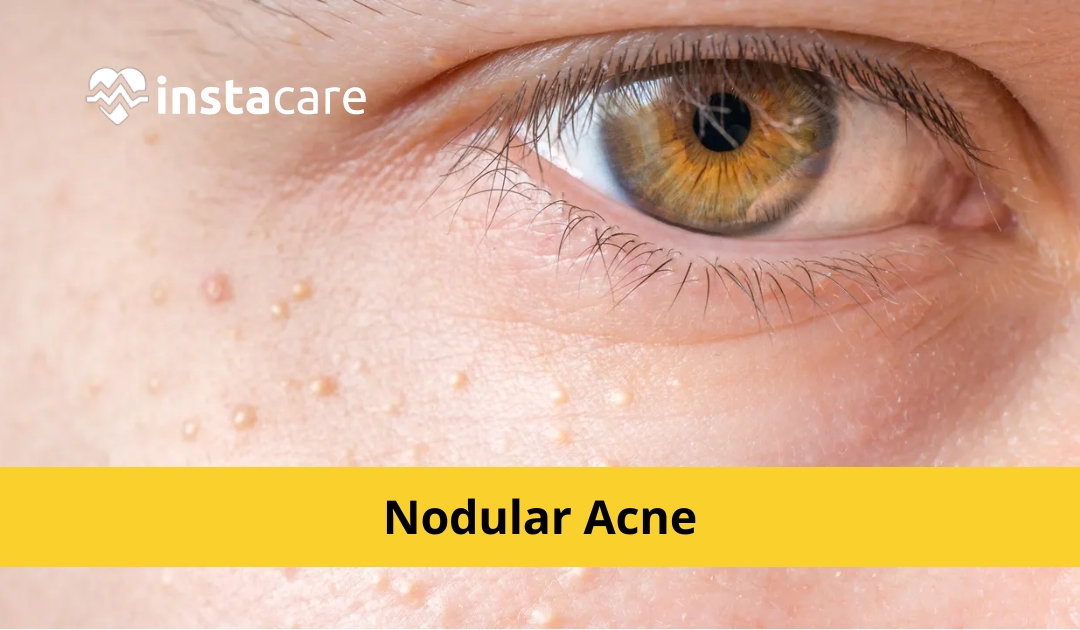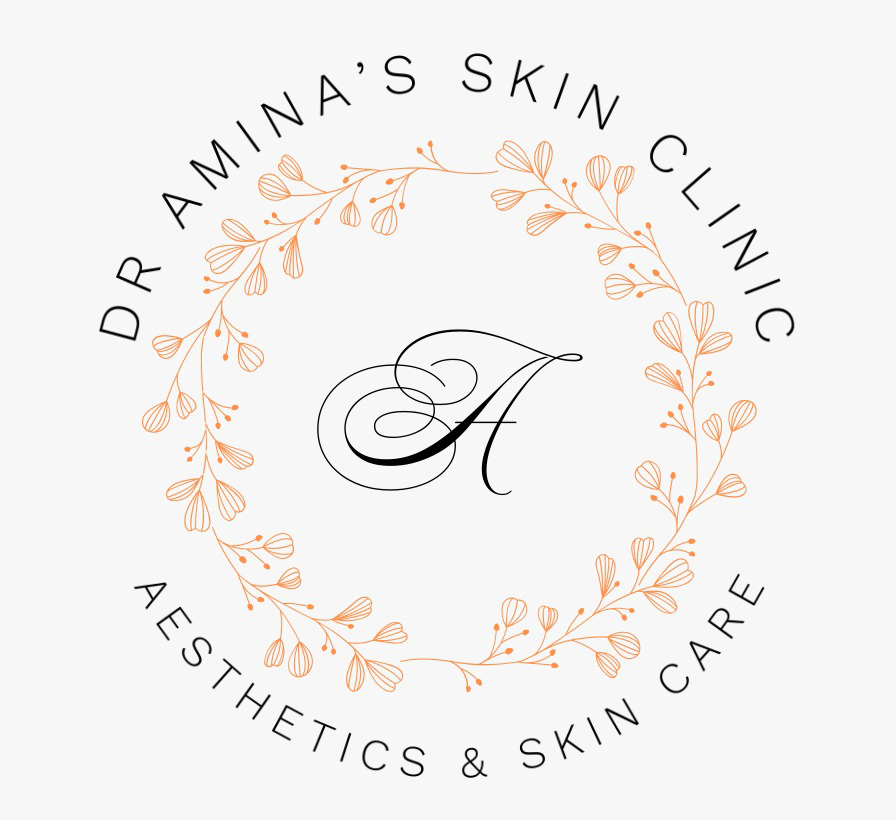Living with acne can be an unwelcome struggle for anyone, but especially for those who are suffering from nodular acne. Those already familiar with this tricky skin condition know just how unpleasant and uncomfortable it can be when diverse and seemingly unstoppable blemishes show up on the face and cause emotional distress.
Nodular acne is no joking matter – if left untreated, painful cysts could form under your skin causing serious irritation and permanent scarring! That’s why today we’re going to discuss everything you need to know about nodular acne: what causes it, its general symptoms, available treatment options, and more.
What is nodular acne?
Nodular acne is a serious form of acne that occurs when pores on the skin become clogged, inflamed, and form bumps filled with pus. These outbreaks can occur anywhere on the body but are most common on the face and neck. Nodular acne happens when bacteria accumulate in clogged pores.
As more bacteria continues to buildup, these pore swell and become hard. In turn, this produces an acne outbreak that looks like raised, reddish lesions or nodules. Treatment for nodular acne requires medication as well as lifestyle changes to relieve symptoms while allowing skins cells to heal. People suffering from this condition should speak with their doctor or skincare professional to find a treatment option right for them.
Who suffer from nodular acne?
Nodular acne is a form of acne which – unlike acne caused by the common blockage of the skin’s pores – results in the formation of large, papule-like lumps. These lumps often cause pain, swelling and redness. Individuals with nodular acne roughly range between 10-30 years old and are usually individuals who suffer from either moderate or severe acne.
It is especially problematic for those with dark skin tones, as it tends to scar more quickly and show discoloration. Very rarely though, nodular acne can be caused by intrinsic factors such as stress or poor dieting. Treatments include topical treatments (for mild cases) or oral medications (for more severe cases).
What does nodular acne look like?
Nodular acne, also known as cystic acne, is one of the most severe forms of acne vulgaris. Typical nodular lesions have a deep-seated, raised appearance and are typically hard to the touch and painful. They tend to be red or purple in colour, and don't always have an obvious blackhead or white centre like other forms of acne.
Nodular acne often occurs on the face but can also appear on other areas of skin such as the upper arms, back, neck and shoulders. In addition to being so difficult to treat due to their deep location underneath the skin surface, nodular acne can often cause scarring if not treated properly. Since it is considered a medical condition individuals who suffer from nodules may need to speak with their dermatologist for a proper treatment plan and prescription medications if needed.
Causes of nodular acne
1- Excessive sweating
Excessive sweating (hyperhidrosis) is a condition that causes the sufferer to frequently and suddenly perspire far more than the body needs to in order to regulate its temperature. An estimated 2-3% of people suffer from this condition, with it being more common among those aged 18-34 than older age groups.
Excessive sweating can have various causes, such as overheating, nerve damage, and an overactive thyroid. Furthermore, certain medications may be contributing factors as well. For those looking for relief, there are a variety of treatments available which range from antiperspirants or medications that block the sweat glands to surgical procedures which remove or redirect them entirely.
2- Genetics
Genetics can be responsible for causes of nodular acne. While acne as a whole is caused by several factors such as an overproduction of sebum, genetic makeup can create an environment that promotes the formation of nodular acne. This type of acne, which forms when clogged pores become inflamed and filled with bacteria, is the most severe form because it develops deep in the skin and causes tender lumps or cysts. Knowing the cause of your nodular acne may help you to manage it more effectively, so if you believe genetics are playing a role in your condition, seeking medical advice may be the best solution.
3- Hormones
Hormones are complex chemical substances produced by cells that act as regulatory signaling agents within the body. They govern crucial biological processes such as growth, metabolism, and reproductive cycle. High levels of some hormones have been found to be one of the causes of nodular acne - a type of severe inflammatory acne that causes large, painful cysts deep in the skin.
Many times hormone imbalances can lead to these big breakouts and it is important to speak with a dermatologist if your acne persists despite over-the-counter medication. Treatment might involve hormonal therapy in order to restore balance and clear up any nodular lesions.
4- Medications
Medications are often used to treat causes of nodular acne, such as corticosteroids and isotretinoin. Corticosteroids, like prednisone and hydroxychloroquine, help control inflammation by suppressing the immune response. Isotretinoin, on the other hand, is a form of vitamin a that causes cells to slow down sebum production.
This helps reduce the buildup of oils beneath the surface of the skin which can clog pores leading to nodular acne. For best results with either medication, your dermatologist will likely advise combining them with regular spot treatments made with benzoyl peroxide or salicylic acid.
5- Skincare products
Skincare products are an essential part of self-care. Products specifically formulated for your skin type can help you keep your skin healthy and radiant. For example, if you suffer from nodular acne, there are numerous causes such as excess oils, hormone fluctuations, genetics, stress and certain medications. There are skincare products that you can use to control causes of this type of acne.
Clogged pores are a common cause of nodular acne, so using a product with salicylic acid can help open up pores and reduce clogging. You might also consider using a foaming cleanser as this can dissolve excess oils that cause pimples on the face. Be mindful when selecting skincare products because some may not be suitable for all skin types, it's important to determine the causes of your acne and select products based on them before trying anything new.
View More: What Are the Symptoms and Causes of Acne
Symptoms of nodular acne
Nodular acne is characterized by large, hard, painful bumps on the skin that can occur as a single lesion or in clusters. It is often caused by bacteria and can involve an infection of the entire follicle and surrounding tissues. Symptoms of this serious form of acne vary amongst individuals but often include redness around the nodule, pain associated with even gentle pressure and prolonged itching which can result in scarring. Understanding these symptoms and taking quick action to address them may help prevent permanent damage.
How is nodular acne diagnosed?
Nodular acne is typically diagnosed by a dermatologist after observing and analyzing the breakouts, lesions, and other skin symptoms. Patients should express any and all information about their medical history that relates to their current diagnosis. The doctor may use various visual technology, such as a digital camera or video microscope, to magnify and record the affected areas.
Blood tests may be conducted to check if hormones are related to any skin conditions or inflammatory episodes; an in-depth physical examination will also be necessary in order to accurately determine the cause of any nodular acne. Furthermore, treatements individualized for each patient can then be discussed with the doctor.
Treatment of nodular acne
1- Oral medications
Oral medications are often prescribed in the treatment of nodular acne, a type of severe acne that can cause large, deep cysts and nodules. Treatment options may include medication such as antibiotics, antibiotics with retinoid creams, and retinoid pills—both derivatives of vitamin a to reduce inflammation and dry out the skin.
Depending on individual patient presentation and severity level, this may be combined with other topical treatments or oral contraceptives. Oral medications may also come in different dosage forms including liquids, tablets and capsules, along with instructions for usage. With prescription treatment via oral medications, physicians often recommend long-term management for successful clinical outcomes.
2- Prescription topical treatments
Prescription topical treatments are a beneficial option for the treatment of nodular acne, the most severe form of acne. These prescription creams or gels can be applied directly to the affected area and may contain active ingredients such as antibiotics, retinoids, or benzoyl peroxide. Treatment time varies depending on the product used and persistence in applying treatments consistently as recommended by a physician is advised for optimal results.
Topical prescriptions also shouldn’t be used as standalone treatments; it is important that other measures, such as dietary changes, oil-absorbing cleansers for gentle cleansing of the skin, and avoidance of touching or squeezing blemishes are maintained even during treatment. For those seeking additional treatment advice from their dermatologist, there are plenty of options available to help find relief from the symptoms associated with severe acne.
3- Cortisone injections
Cortisone injections are one of the most effective treatments for nodular acne. Injected directly into acutely inflamed lesions, these injections reduce inflammation, pain and redness on contact. Treatment is fast-acting and results can be seen in as little as 24 hours. Cortisone injections can also help to prevent scarring by calming active lesions in as little as two weeks. For individuals who suffer from nodular acne, cortisone injections can provide relief with minimal effort.
When to see your dermatologist?
Seeing a dermatologist is always a good idea when it comes to skin-related issues. It's important to be proactive instead of reactive with your skin care, and your dermatologist can help you set up a regular routine. Treatment of nodular acne, in particular, requires professional advice, since these inflamed bumps can cause scarring if left untreated.
A doctor will typically recommend topical creams and medications to reduce the appearance of nodules and cysts, as well as lifestyle modifications that could reduce flareups such as eating an anti-inflammatory diet or avoiding triggers like dairy and sugar. Regardless of the treatment plan prescribed by your doctor, always remember to follow through with it for best results.
View More: Home Remedies To Get Rid Of Acne
How to prevent nodular acne?
Treatment of nodular acne starts with prevention. To help prevent the occurance of this particular type of acne, it is important to practice good hygiene, use gentle skincare products, and keep track of when inflammation has occured. You should also be mindful to cleanse your face twice a day with lukewarm water and a gentle cleanser. Avoiding picking or squeezing pimples can go a long way to preventing the spread of nodular acne.
Finally, keeping oily skin hydrated and avoiding skin irritants like fragrances or harsh skin care products can also help minimize nodular breakouts. By following these simple guidelines, you can reduce the risk of developing nodular acne and keep your complexion looking clear and healthy.
Conclusion
If you or someone you know is struggling with nodular acne, don't despair. With the right treatment and some patience, it can be managed. Try these tips and see how they work for you. Do you have any other ideas that have helped you manage your nodular acne? Please share them in the comments so we can all benefit from your experiences!
Please book an appointment with the best Dermatologist in Lahore, Karachi, Islamabad, and all major cities of Pakistan through InstaCare, or call our helpline at 02137136090 to find a verified doctor for your disease.











